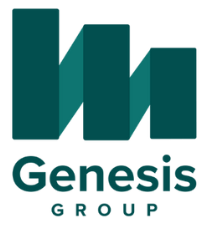Reading Time: 7 minutes

Embracing the freedom of self-employment brings many rewards and a few unique challenges—particularly when it comes to navigating the mortgage process. In Canada, securing a mortgage when you’re self-employed can often feel like moving through a maze blindfolded. But it doesn’t have to. Understanding the intricacies can transform an opaque journey into a transparent and successful venture into homeownership. This comprehensive guide aims to demystify the process, offering detailed insights and practical tips to help self-employed Canadians like you prepare for, secure, and manage a mortgage efficiently.
Understanding Self-Employed Mortgage Requirements

The self-employed mortgage process begins with a clear understanding of what lenders look for: consistency, reliability, and predictable income. For the self-employed, this means being ready to present a robust financial profile with documentation to back it up. Here’s what you need to gather:
Tax Returns: Your past two or three years’ worth of T1 General returns and accompanying Notice of Assessment (NOA) which confirms your income and that you have no tax liabilities.
Financial Statements: Profit and Loss statements that are professionally prepared can bolster your application, particularly if you can show consistent or increasing profits.
Proof of Your Business: Lenders may want evidence of your business’s existence such as your business license, GST/HST registration, or articles of incorporation.
Down Payment Proof: Documentation showing the source of your down payment, whether it’s from savings, investments, or a gift.
Credit Score Reports: A credit report to verify your creditworthiness and history of debt repayment.
Preparing Your Financial Profile

Crafting a compelling financial profile as a self-employed individual requires more than just a healthy income. Here’s what you can do:
Debt Consolidation: Streamline any outstanding debts. A single, lower-interest loan is easier to manage and more appealing to lenders.
Credit Score: Ensure your credit score is the best it can be. Pay down credit card balances, avoid late payments, and correct any inaccuracies on your credit report.
Savings: Beyond your down payment, having savings equates to financial stability. Show that you can handle the unexpected.
Gifted Funds: If you’re fortunate to receive assistance from family, have a gift letter ready to explain these funds to your lender.
Investments: Keep records of any investments as they contribute to your financial resilience.
Choosing the Right Mortgage for Self-Employed Individuals

Introduction to Mortgage Product Selection
Choosing the right mortgage product is a pivotal decision in the journey of property ownership. It’s not merely about finding a way to finance your purchase—it’s about selecting a financial tool that aligns with your income stability, investment strategy, and long-term financial goals. For individuals with variable income, such as the self-employed or commission-based earners, this decision becomes even more critical.
The Stability of Fixed-Rate Mortgages
Securing Predictable Payments Fixed-rate mortgages offer the peace of mind that comes from predictability. Regardless of market fluctuations, your payments remain unchanged throughout the term of the loan. This can be particularly advantageous for those whose income may not be consistent month to month.
Long-Term Financial Planning With a fixed-rate mortgage, long-term financial planning becomes more manageable. You can forecast your expenses accurately, allowing for more precise budgeting and investment planning.
Navigating Variable-Rate Mortgages
Capitalizing on Initial Savings Variable-rate mortgages often start with lower interest rates compared to fixed-rate mortgages, potentially offering initial savings on your payments.
Adapting to Market Conditions However, these products require a level of financial agility. As interest rates fluctuate in response to economic indicators, so too will your mortgage payments, necessitating a proactive approach to personal financial management.
Embracing Hybrid Mortgage Solutions
Combining Stability and Savings A hybrid mortgage combines elements of both fixed and variable-rate products. During the fixed-rate period, you benefit from predictable payments. When the mortgage transitions to a variable rate, you have the opportunity to save if rates decrease.
Tailored for Flexibility This type of mortgage can be particularly beneficial for self-employed individuals who seek the security of fixed payments but are confident in their ability to manage the potential fluctuations of variable rates later on.
Conclusion: Matching Mortgage to Income Patterns
In essence, selecting the right mortgage type is about matching your mortgage to your income patterns and tolerance for risk. It’s about safeguarding your financial future while also positioning yourself to take advantage of potential market changes. Whether you opt for the stability of a fixed-rate, the initial savings of a variable-rate, or the blended approach of a hybrid mortgage, the key is to choose a product that reflects your financial situation and supports your overall financial strategy.
Navigating Income Verification

One of the most formidable aspects of the mortgage process for the self-employed is proving income. If your tax returns don’t fully reflect your current earnings, lenders may consider an “add-back” approach where certain deducted expenses can be added back into your income, or they may accept a stated income approach with sufficient down payment and a strong credit history. Prepare the following:
Bank Statements: Show consistent income deposits in your business or personal bank accounts.
Signed Contracts: Demonstrate future income with signed contracts or letters of intent from clients.
Alternate Documentation: Lenders may also accept a combination of secondary documents, including client invoices, proof of dividend payments, or investment income statements.
Managing Fluctuating Incomes

Income ebb and flow is part and parcel of self-employment. To manage this:
Average Your Income: Lenders often average your income from the past two to three years. If your income has been increasing yearly, some lenders may consider the most recent year.
Debt-to-Income Ratio: Keep this ratio low. It shows lenders that you can afford your mortgage payments, even in leaner months.
Financial Cushion: Have a financial buffer to cover mortgage payments during periods of reduced income, assuring lenders of your ability to pay.
Leveraging Business Assets and Collateral

The Temptation of Leveraging Business Assets
Understanding Asset Leverage Leveraging business assets can appear as an attractive option for securing a mortgage. This strategy taps into the value of what your business already owns, potentially unlocking favorable mortgage rates and more agreeable terms that are not readily available through traditional lending routes.
Assessing the Benefits of Asset-Backed Mortgages
Securing Advantageous Financing By using business assets as collateral, you might gain access to capital with reduced interest rates or improved loan conditions. This could make a substantial difference in your overall financing costs and the growth trajectory of your investment.
Navigating the Risks
Exercising Financial Prudence While leveraging business assets can lead to better financial outcomes, it’s a decision that comes with its share of risks. It’s essential to employ this strategy with caution, as it links the fate of your business assets directly to the success of your real estate investment.
Consulting with Financial Experts
Partnering with Advisors Before committing business assets as collateral for a mortgage, it’s crucial to have an in-depth consultation with a financial advisor. This professional can provide an objective assessment of how such a move would fit into your broader business strategy and the potential impacts on your business’s liquidity and operational integrity.
Making Informed Decisions
Strategic Considerations Ultimately, leveraging business assets for a mortgage should align with your long-term business objectives and not compromise the operational stability of your enterprise. A strategic approach, guided by expert financial advice, will help ensure that leveraging your business assets contributes positively to your growth ambitions without putting your company’s core operations at risk.
Making It Happen
Securing a mortgage as a self-employed individual in Canada is an involved process, but with careful preparation and strategic financial management, it’s entirely achievable. Align yourself with a knowledgeable mortgage broker who understands the self-employed landscape. The Genesis Group, with its bespoke approach to mortgage brokerage, can be your ally in turning the dream of homeownership into a reality.

Are you self-employed and considering a mortgage? The Genesis Group is here to guide you every step of the way. Contact us to start your journey toward homeownership with confidence.
Glossary:
- Notice of Assessment (NOA): An official statement from the Canada Revenue Agency (CRA) that summarizes your income and tax situation.
- Credit Score: A numerical expression based on a level analysis of a person’s credit files, to represent the creditworthiness of an individual.
- Debt-to-Income Ratio: A personal finance measure that compares an individual’s debt payment to his or her overall income.
- Fixed-Rate Mortgage: A home loan with steady interest rates and monthly payments for the life of the loan.
- Variable-Rate Mortgage: A home loan with an interest rate that can fluctuate based on market conditions.
FAQs:
Can I get a mortgage if I’ve been self-employed for less than two years?
It can be challenging, but it’s not impossible. Some lenders will consider applications from those self-employed for a shorter time if there’s a proven track record of income in the same field of work.
What can I do if my income varies greatly from year to year?
Provide lenders with a written explanation for any significant fluctuations and show proof of current income stability. Additionally, larger down payments and a strong credit history can help.
How does being self-employed affect my mortgage interest rate?
Being self-employed does not automatically mean you’ll be offered a higher interest rate, but lenders may see you as a higher risk. A strong financial profile can help you qualify for competitive rates.
Should I get pre-approved before house hunting?
Absolutely. Pre-approval gives you a clear idea of what you can afford and shows sellers that you’re a serious and prepared buyer.

